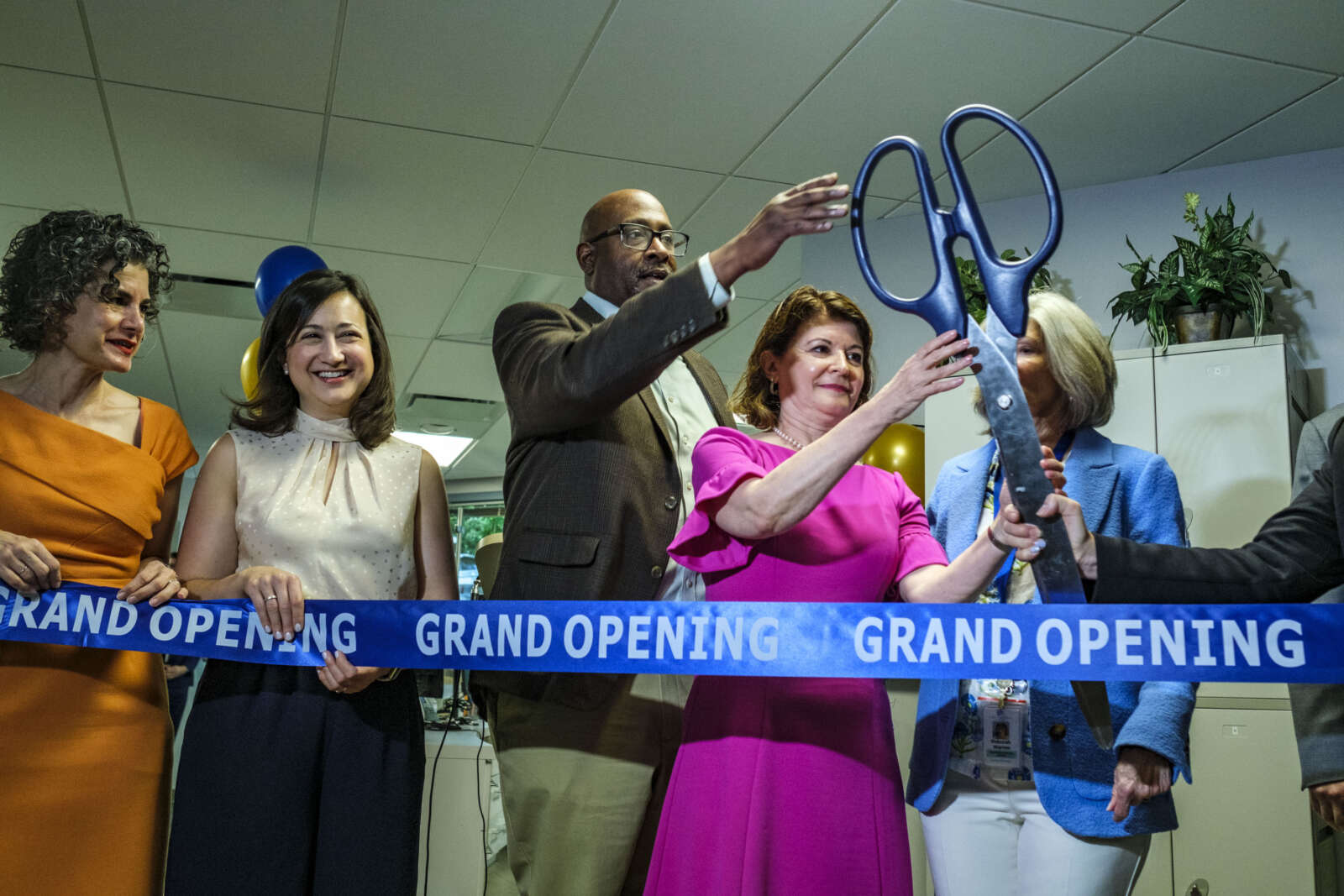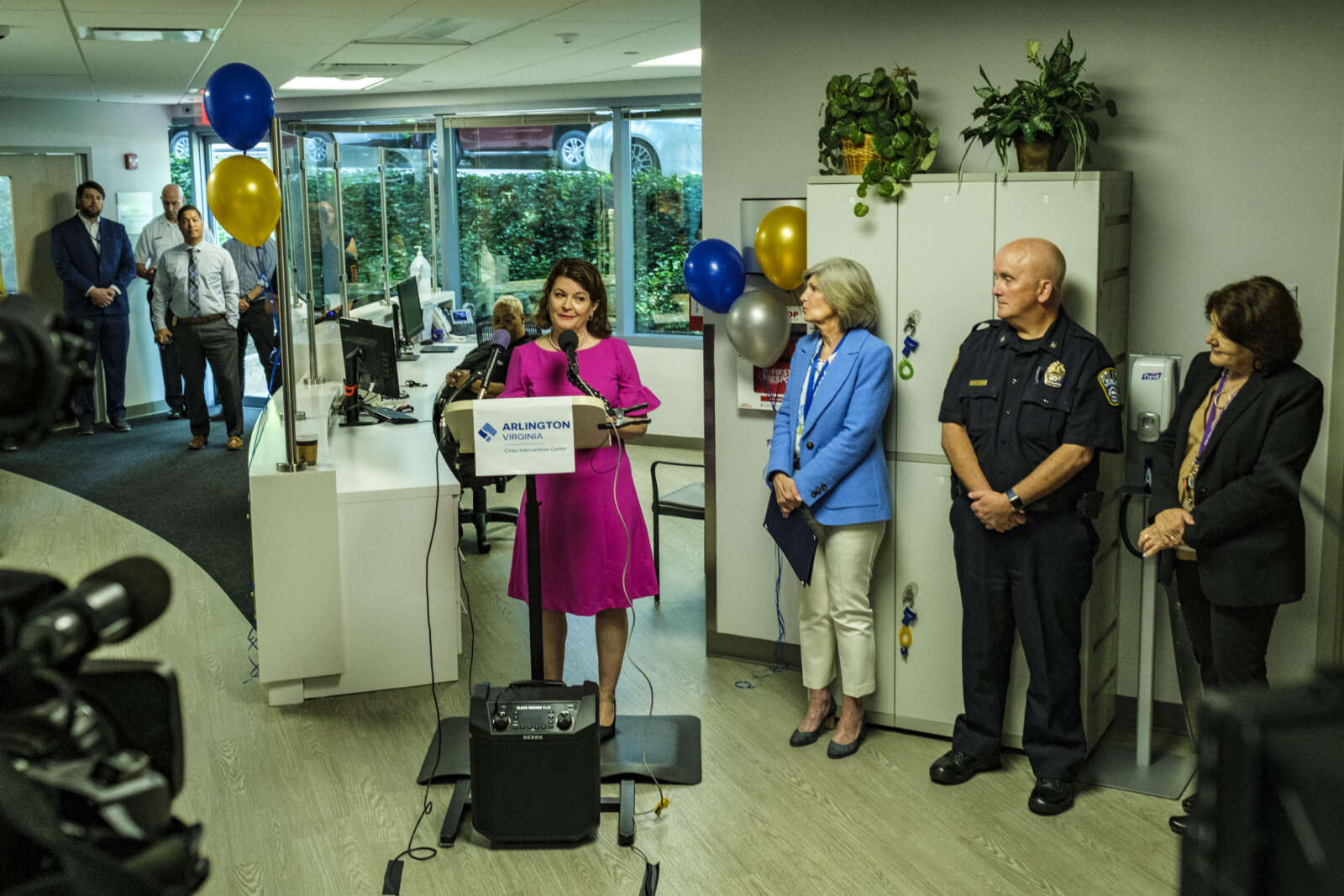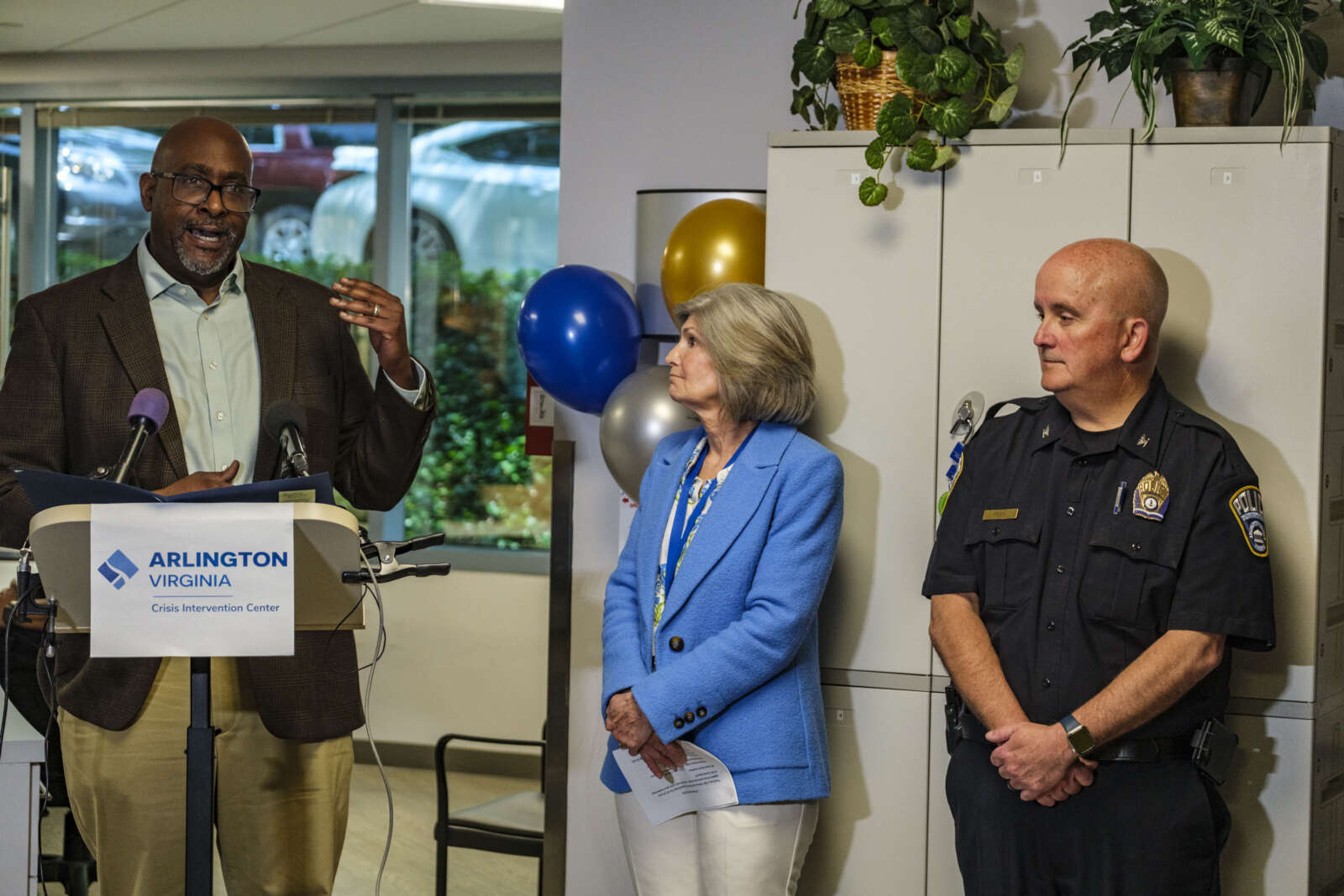Local and state officials gathered today to celebrate the grand opening of a place where people can go if they are experiencing a behavioral health crisis.
The newly renovated Crisis Intervention Center (CIC) provides behavioral healthcare services in a community-based setting to individuals experiencing a psychiatric crisis. The location at 2120 Washington Blvd is open 24/7, 365 days per year, to people of all ages.
With the center, Arlington County aims to divert people in crisis from the emergency room and away from interactions with law enforcement — an imperfect system that was straining Arlington County Police Department, the Sheriff’s Office and local hospitals.
It comes as, in Arlington, nearly 10% of adult residents are reporting frequent mental distress, compared to 13% in all of Virginia, according to Arlington County Board Chair Christian Dorsey. In the wake of the pandemic, Northern Virginia saw a four-fold increase of adults reporting the onset of anxiety and depression symptoms, as well as one in 10 youth in the region contemplating suicide last year.
“It was critical for us to figure out, to pivot as soon as we could possibly pivot, to figure out alternatives to psychiatric hospitalizations,” Arlington County Dept. of Human Services Deputy Director Deborah Warren said during the ceremony today.
“People in a behavioral health crisis were being brought to the ER where, once they were assessed by a certified [clinician] and got a temporary detention order, they would languish for sometimes a week, or 10 days at a time — not getting care — handcuffed to a gurney and guarded by police or sheriff,” she continued.
Imagine, she continued, being paranoid, hearing voices or being significantly depressed and going to the hospital with its bright lights and cacophony of noises.
“It’s not trauma-informed,” she said. “Maybe all they need is to talk to somebody. Maybe they just need to be in a calming space and de-escalate, instead of a very stressful environment in the hospital.”
The grand opening of the CIC celebrated new ways the county Dept. of Human Services has been authorized to help people.
The center can now keep individuals who are under an emergency custody order (ECO) for up to eight hours so they can get a behavioral health assessment to determine if they need to go to the hospital or receive other services — an assessment that had typically been done in the hospital.
Law enforcement officers can transfer care of people in their custody experiencing a crisis to staff at the center. These “special conservators of the peace” are trained and authorized by Arlington County Police Chief Andy Penn and a judge to accept custody of individuals from law enforcement. They can either stay with these individuals at the center or bring them to the hospital, if necessary.
Lastly, the center — staffed with nurses and someone who can prescribe medicine — is now licensed to help stabilize someone in crisis for up to 23 hours, in compliance with stringent state licensing standards.
“This is something that each and every member of the County Board is proud of,” Board Chair Christian Dorsey said. “This really represents the culmination of a whole-of-community approach of which we can all be proud.”
Already, the CIC is getting about 15 walk-in clients a week or 60 every month.
Warren expects that number to rise significantly with the center’s new capabilities. Also contributing to more usage: the increased marketing of 988, a new national suicide and mental health crisis hotline, as an alternative to 911.
State Sen. Barbara Favola commended the local leaders who made the center a reality.
“You managed to all come together and figure out how to cross the silos and how to serve a patient in the best way possible,” she said. “I know the state realizes as many as 70% of folks who were previously calling 9-1-1 were calling because someone was having a behavioral health crisis and there wasn’t a way to address that… I could not be prouder of Arlington.”
Staff photographer Jay Westcott contributed to this report






